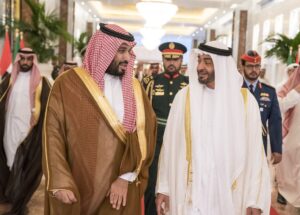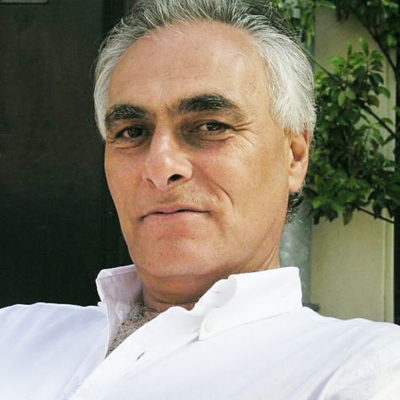(November 15, 2020 / BESA Center)
The worldview of Saudi Crown Prince Mohammed bin Salman and his United Arab Emirates counterpart Mohammed bin Zayed rejects any political expression of Islam, propagates a religious duty to obey the ruler without exception, represses freedom of expression and dissent, yet leaves unchallenged religious concepts such as notions of infidels and slavery that are viewed by Muslim reformers as well as significant segments of Arab youth as obsolete.
ADVERTISEMENT

The crown princes’ similar worldviews are, in part, a response to changing youth attitudes toward religiosity that are evident in public opinion polls and in mass anti-government protests in countries like Lebanon and Iraq.
The changes attach greater importance to individual morals and values and less to formal observance of religious practice. They also represent a rejection of sectarianism, which is a fixture of governance in Lebanon and Iraq as well as the Saudi kingdom’s past religious ultra-conservatism.
The problem for rulers like the Saudi and UAE crown princes is that the loosening of social restrictions in Saudi Arabia, including the emasculation of the kingdom’s religious police, the lifting of a ban on women driving, less strict implementation of gender segregation, introduction of Western-style entertainment, greater professional opportunities for women and a degree of genuine religious pluralism in the UAE are only first steps toward responding to the aspirations of young people.
The subjugation of religious establishments that turn clerics and scholars into regime parrots fuels scepticism among young people toward religious institutions and leaders. It is also void of a credible theological effort to recontextualize Muslim concepts that no longer apply in a modern and changing world.
“Youth have … witnessed how religious figures, who still remain influential in many Arab societies, can sometimes give in to change even if they have resisted it initially. This not only feeds into Arab youth’s scepticism towards religious institutions but also further highlights the inconsistency of the religious discourse and its inability to provide timely explanation or justifications to the changing reality of today,” said Gulf scholar Eman Alhussein in a commentary on the latest Arab Youth Survey.
The survey found that despite 40 percent of those polled defining religion as the most important constituent element of their identity, 66 percent saw a need for religious institutions to be reformed.
“The way some Arab countries consume religion in the political discourse, which is further amplified on social media, is no longer deceptive to the youth, who can now see through it,” said Alhussein.
A 2018 Arab Opinion Index poll suggested that public opinion may support the reconceptualization of Muslim jurisprudence. Sixty-eight percent of those polled agreed that “no religious authority is entitled to declare followers of other religions to be infidels.”
Similarly, 70 percent of those surveyed rejected the notion that democracy was incompatible with Islam, while 76 percent viewed it as the most appropriate system of governance.
What that means in practice is less clear.
Arab public opinion appears split down the middle when it comes to issues like separation of religion and politics or the right to protest.
Michael Robbins, director of the Arab Barometer, cautioned in a commentary in The Washington Post co-authored with international affairs scholar Lawrence Rubin that recent moves by the government of Sudan to separate religion and state may not enjoy public support.
The transitional government brought to office last year by a popular revolt that topped Islamist President Omar Bashir agreed in peace talks with Sudanese rebel groups last month to a “separation of religion and state.”
The government also ended the ban on apostasy and consumption of alcohol by non-Muslims and prohibited corporal punishment, including public flogging.
Robbins and Rubin noted that 61 percent of those surveyed on the eve of the revolt believed Sudanese law should be based on sharia (Islamic law), defined by two-thirds of the respondents as ensuring the provision of basic services and freedom from corruption.
The researchers nonetheless also concluded that youth favored a reduced role for religious leaders in political life. They said youth had soured on the idea of religion-based governance because of widespread corruption during the reign of Bashir, who professed an adherence to religious principles.
“If the transitional government can deliver on providing basic services to the country’s citizens and tackling corruption, the formal shift away from sharia is likely to be acceptable in the eyes of the public. However, if these problems remain, a new set of religious leaders may be able to galvanize a movement aimed at reinstituting sharia as a means to achieve these objectives,” Robbins and Rubin warned.
It is a warning that is as valid for Sudan as it is for much of the Arab and Muslim world.
Asked in a recent poll conducted by The Washington Institute of Near East Policy whether “it’s a good thing we aren’t having big street demonstrations here now the way they do in some other countries”—a reference to the past decade of popular revolts in Tunisia, Egypt, Libya, Yemen, Algeria, Lebanon Iraq, and Sudan—Saudi public opinion was split down the middle. Forty-eight percent of respondents agreed and 48 percent disagreed.
Saudis, like most Gulf Arabs, are likely less inclined to take grievances to the streets. Still, the poll indicates that they may prove to be more empathetic to protests should they occur.
Taken together, the various polls suggest that at a time of economic downturn and inevitable transition that puts a premium on delivery of public goods and services as well as good governance, Arab and Muslim leaders could find changing attitudes toward religiosity to be a double-edged sword.
Performance could turn it into an asset, but that would have to involve greater independent bottom-up civil society engagement for which there is more often than not little scope. A failure to deliver could turn it into a threat.
Dr. James M. Dorsey, a non-resident senior associate at the BESA Center, is a senior fellow at the S. Rajaratnam School of International Studies at Singapore’s Nanyang Technological University and co-director of the University of Würzburg’s Institute for Fan Culture.
This article was first published by the Begin-Sadat Center for Strategic Studies.
Statements, comments or opinions published in this column are of those of the author(s) and do not necessarily reflect the editorial policy of Warsan magazine. Warsan reserves the right to moderate, publish or delete a post without prior consultation with the author(s). To publish your article or your advertisement contact our editorial team at: warsan54@gmail.com


